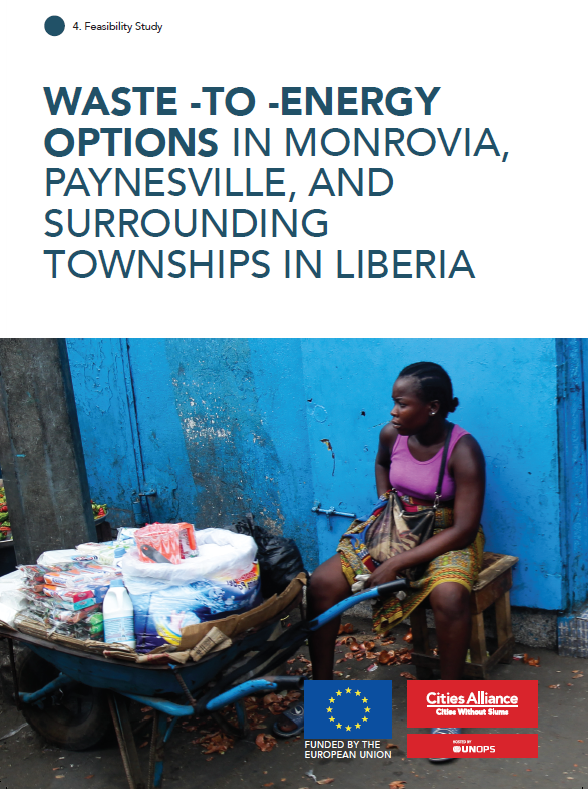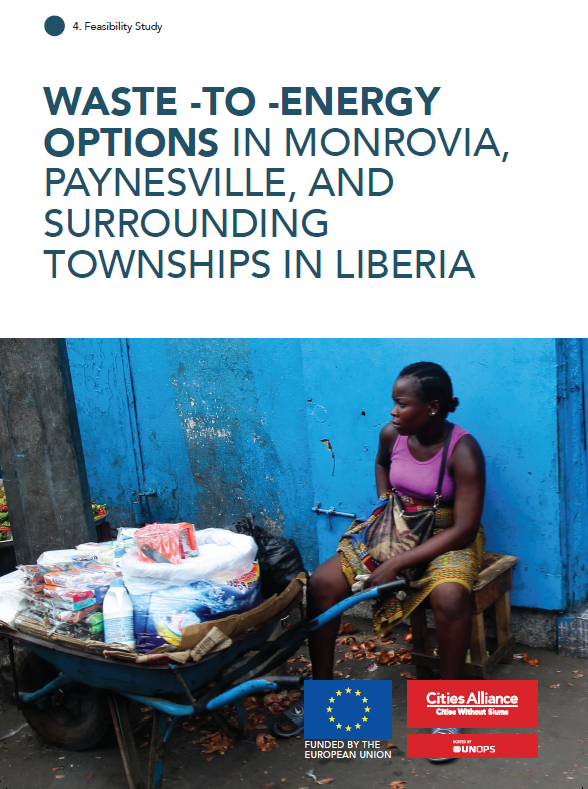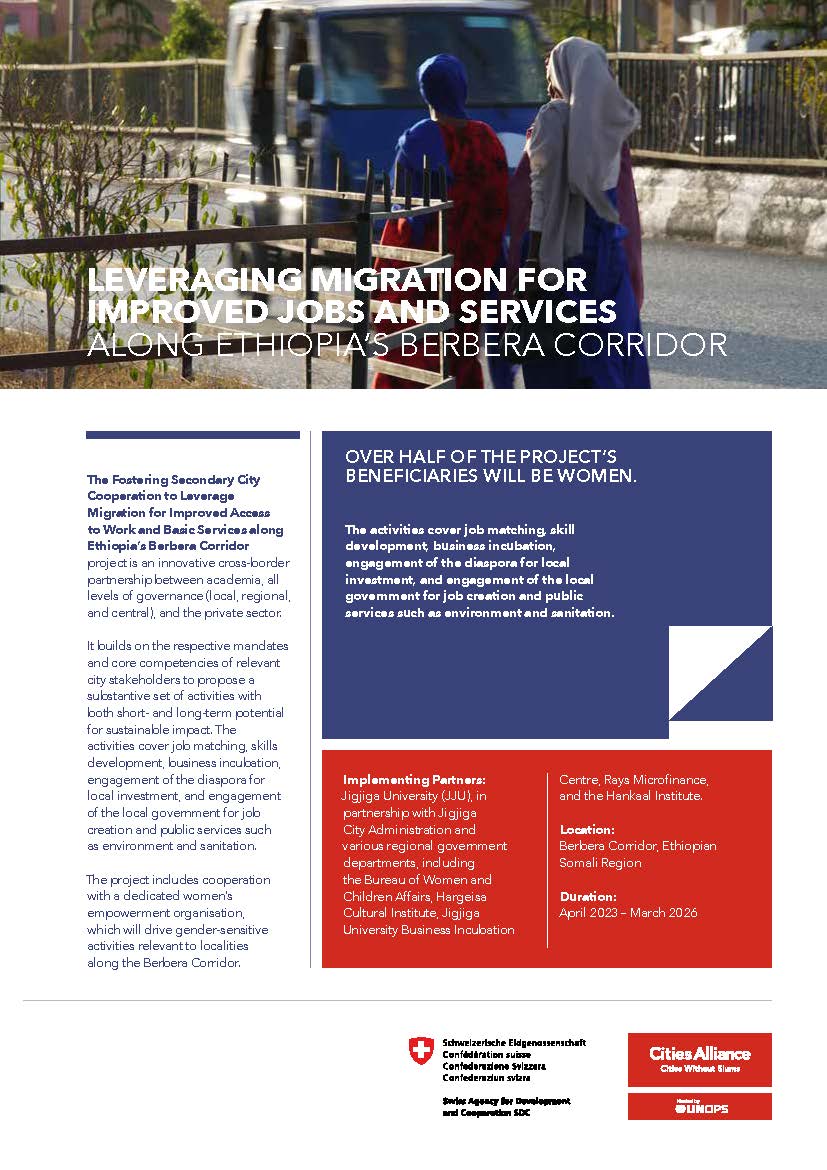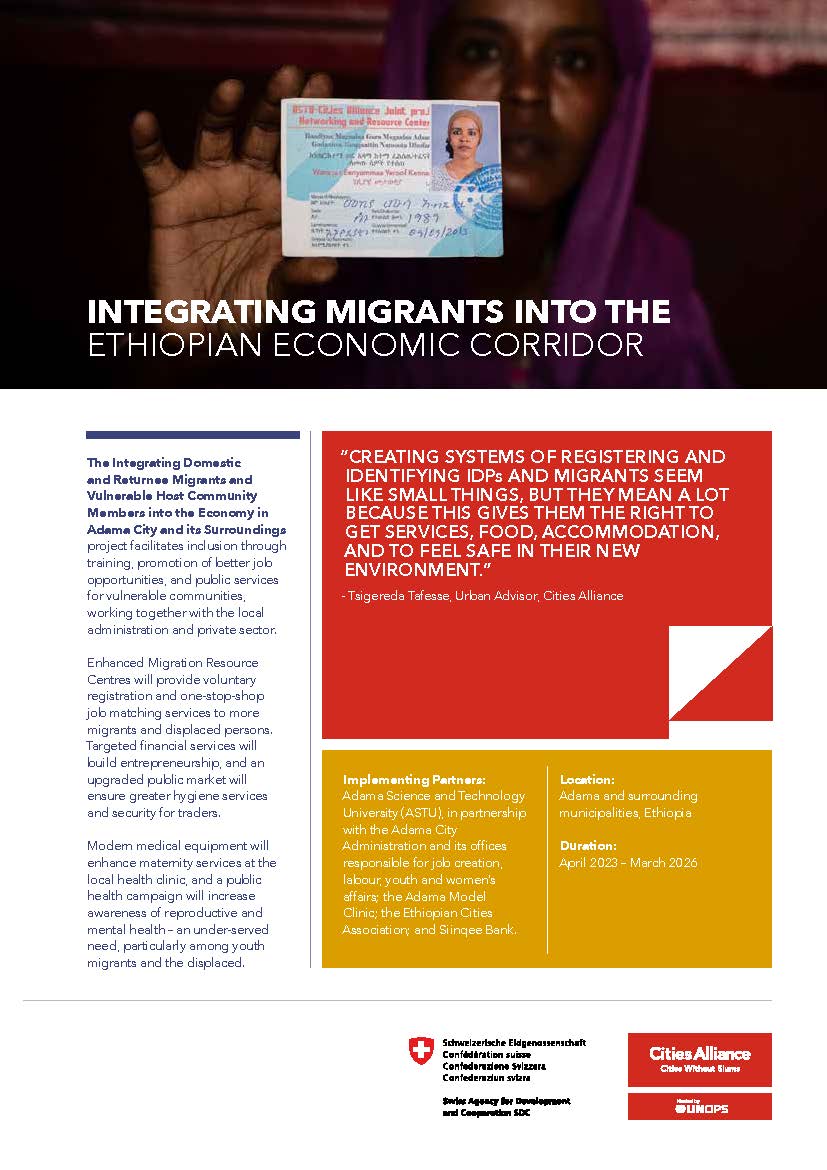- Who We Are
- How We Work
- Regional / Country Initiatives
- Legacy
- Core Themes
- Working Groups
- Portfolio & Results
- Newsroom
- Resources
Feasibility Study on W2E in Greater Monrovia

The Feasibility Study on Waste-to-Energy (W2E) Options in Monrovia, Paynesville, and Surrounding Townships in Liberia provides an overview of an initial pilot project to build home biogas units and makes recommendations for expanding the pilot.

The study explores small-scale, community-based W2E initiatives that Cities Alliance could pilot in Greater Monrovia. After considering various alternatives, it focuses on the most viable option: building home biogas units in various locations in the Greater Monrovia area to convert organic food waste to gas that could be used for cooking.
It also covers an initial pilot for the procurement, installation, training, monitoring, and end-user support for 10 home biogas units in Greater Monrovia. The pilot generated valuable lessons, especially regarding the challenging process of selecting workable sites for a home biogas unit that fulfilled the criteria (ability to generate sufficient waste, flat ground for the unit, ability to use the cooking gas, and the capacity to use or dispose of the liquid effluent produced in an environmentally friendly manner).
Based on the pilot, the study recommends a further initiative to install 20 home biogas units in locations throughout Greater Monrovia, rather than the 100 initially under consideration due to difficulties with locating appropriate sites and complex installations.
The feasibility study was undertaken as part of a project on W2E alternatives funded by the European Union and implemented by Cities Alliance through the Liberia Country Programme.
Related Reports
Greater Monrovia Solid Waste Management Baseline
Feasibility Models and Action Plan for Composting and Recycling in Greater Monrovia


